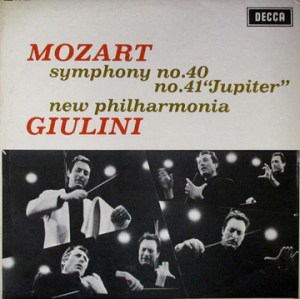
More of the music of Wolfgang Amadeus Mozart (1756-1791)
Reviews and Commentaries for the Music of Mozart
Sonic Grade: B?
One of the better Speakers Corner Deccas. They released this title on Heavy Vinyl in 1998. In those days, it was one of the few Speakers Corner classical recordings we used to carry and recommend.
We knew it sounded good, but up until recently, when we started collecting and playing the better Deccas and Londons, we sure didn’t know it could sound as good as the best of those vintage pressings do.
Below are some thoughts from a recent classical listing that we hope will shed some light on our longstanding aversion to the sound of modern remasterings.
Transparency
What is lost in these newly remastered recordings? Lots of things, but the most obvious and bothersome is TRANSPARENCY.
Modern records are just so damn opaque. We can’t stand that sound. It drives us crazy. Important musical information — the kind we hear on even second-rate regular pressings — is simply nowhere to be found. That audiophiles as a group — including those that pass themselves off as champions of analog in the audio press — do not notice these failings does not speak well for either their equipment or their critical listening skills.
It is our contention that no one alive today is capable of making records that sound as good as the vintage ones we sell.
Once you hear this Hot Stamper pressing, those 180 gram records you own may never sound right to you again. They sure don’t sound right to us, but we are in the enviable position of being able to play the best properly-cleaned older pressings (reissues included) side by side with the newer ones. This allows the faults of the current reissues to become much more recognizable, to the point of actually being quite obvious. When you can hear the different pressings that way, head to head, there really is no comparison. (more…)


